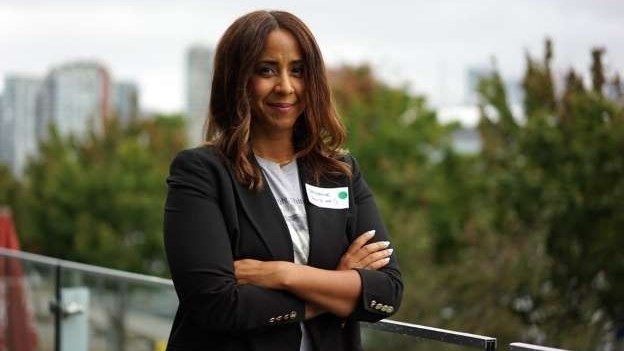This weekend, we saw all of our calendars turn to February, commonly associated with Valentine’s Day, Family Day, this year’s leap year and my birthday. The latter is clearly not celebrated by all. Together, this is a lot that gets packed into the shortest month of the year.
Another important and often-overlooked milestone in February is Black History Month.
When I Googled the phrase “Black History Month in B.C.” the first two questions that showed up on the screen were: “Does Canada have a Black History Month?” and “Why do we have Black History Month in Canada?”
I found this really sad and disappointing, and even disrespectful to the black community.
Even before realizing it was Black History Month, I’d already earmarked this column to include an interview with Stephanie Allen. Allen is an executive in the affordable housing sector who is working tirelessly to educate people on the displacement of black communities in Canada and to shed light on historical and present-day oppression. Allen is also a founding member of the Hogan’s Alley Society in Vancouver, she is on a steering committee for Federation of Black Canadians, and recently attended meetings at the United Nations headquarters in New York, and Canadian mission to the United Nations to celebrate the United Nations Decade for People of African Descent.
The UN Decade for People of African Descent is very similar to the UN Declaration on the Rights of Indigenous People, which I wrote about a few weeks ago.
During this past year, I’d sat on some conference panels with Allen talking about reconciliation, inclusion and women in business. I have found many similarities we share stemming from my work in Indigenous communities and Allen’s work in black communities.
Allen has a vision of Indigenous and black communities working together to move forward, and I see a lot of merit in this thought.
“As black people forced to these lands, we were not settlers. We were enslaved,” said Allen, emphasizing 200 years of Canadian slavery.
During my conversation with Allen, she shared historical information that I am disappointed I’d never thought of before.
“Canada could have had a more bustling slave economy if it wasn’t for our climate,” Allen said. “In Canada, we didn’t have a plantation economy like they did in warmer climates.”
Another interesting historical event Allen shared was that around 1858, African Americans were invited to come to Victoria to act a deterrent to American encroachments.
“They came under similar offers as white settlers, but they were no more welcome than they were in America,” Allen said talking about how some of the black community members were harassed, threatened and some even found murdered on their properties.
“Many black migrants found it too hostile in these territories and returned back to the U.S., others relocated to Vancouver or elsewhere in Canada,” said Allen.
There is no denying our country was built by many non-white communities. Another example of this is the Canadian railroad being built by Chinese immigrants.
There are many historical injustices that have occurred where racialized people were treated as “less than.” We can’t change the past, but I think it is important to think about it and reflect on it.
First Nations people are 4.74 per cent of our population in B.C., and people of African origins are 1.8 per cent.
“We suffer from invisibility in policy due to being a small population, but are also hyper-visible for discrimination,” Allen said.
It’s true members of the black community are often victims of stereotyping and unfairly subject to “random” searches and scrutiny.
“There is a Canadian brand of racism, it’s where people say common phrases like: ‘I don’t see colour,’ ” Allen said. “If we don’t see race, we can’t see the racism that occurs.”
This was a powerful statement to me, and I think I will keep this with me for a long time. “I don’t see colour” is a commonly used phrase, and people say it as a way to demonstrate their progressiveness, but I think Allen is right.
Instead, we need to be aware that there is racism around us and to acknowledge that all of us can play a role in standing up to it. By turning our heads and not seeing colour, we are letting it happen.
Charla Huber is the director of communications and Indigenous relations for M’akola Housing Society.



